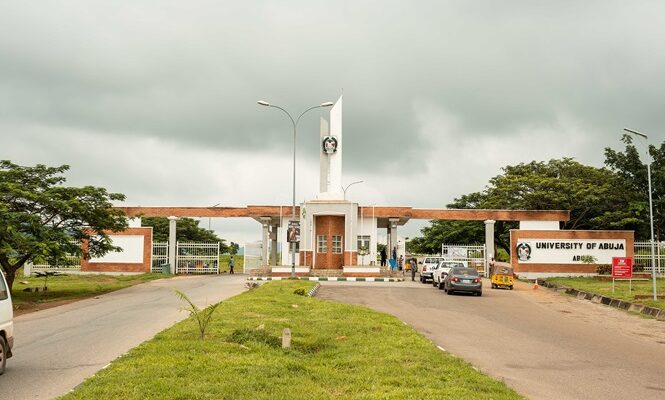The renaming of higher institutions in Nigeria has often sparked significant debate and mixed reactions among stakeholders, particularly alumni, students, and the general public.
While such gestures are typically intended to honor notable national figures, they sometimes encounter resistance due to the emotional and historical connections people have with these institutions.
A case in point is the renaming of the University of Lagos in 2012 and the recent decision by President Bola Ahmed Tinubu to rename the University of Abuja in honor of General Yakubu Gowon.
This piece explores the similarities between both events and highlights the unfolding narrative surrounding these decisions.
In June 2012, President Goodluck Jonathan renamed the University of Lagos, famously known as UniLag, to MKO University. June 12 is widely regarded as a day with a profound democratic history in Nigeria.
This presidential gesture was aimed at honoring MKO Abiola, who was believed to have won the 1993 presidential election but was denied his mandate when the election was annulled by the then military junta.
Upon the announcement of the renaming of the institution, the alumni association swiftly took to the streets in protest and vehemently opposed the decision.
To them, UniLag was not just a name but a legacy, a household name that carried weight and prestige. They argued that altering the name would diminish the glory and heritage embedded in the certificates they had earned over the years.
The alumni association and other stakeholders maintained their ground in resistance until the presidency reconsidered its decision and rescinded the renaming.
Yesterday, President Bola Ahmed Tinubu renamed the University of Abuja, popularly known as UniAbuja. This federal ivory tower, located within the Federal Capital Territory (FCT), now bears the name of General Yakubu Gowon—the man who became Nigeria’s Head of State at the youthful age of 33.
The renaming of the institution, upon ratification of the Federal Executive Council’s (FEC) approval by the National Assembly, will see it officially called Yakubu Gowon University (YGU).
For those who are criticizing or expressing mixed feelings about the renaming of the institution, it is important to note that a similar situation occurred in 2012 in the current president’s home state.
While there is nothing inherently wrong with renaming institutions to honor national heroes, prioritizing adequate funding and infrastructural development of these schools would yield far more tangible benefits.
Many federal universities in Nigeria, including the University of Abuja, face issues such as poor funding, dilapidated infrastructure, and outdated academic programs struggling to meet accreditation standards.
Rather than focusing on renaming, the government would do well to address these critical issues, ensuring that the institutions live up to their potential as centers of academic excellence.
A well-funded and well-maintained university will better honor the memory of national legends than a name change alone.
Additionally, the government should explore other public facilities and landmarks that can be renamed in honor of these historical figures. Infrastructure such as roads, bridges, airports, stadiums, and even hospitals can serve as fitting tributes while preserving the legacy of the individuals being celebrated.
This approach would not only reduce the emotional backlash often associated with renaming educational institutions but also ensure a more balanced distribution of recognition for the nation’s heroes. By doing so, the government can strike a balance between honoring legends and addressing the pressing needs of the education sector.
In the coming days, the nation will watch with interest to see the direction in which the pendulum will swing.
– Oyigu Elijah writes from Abuja.




